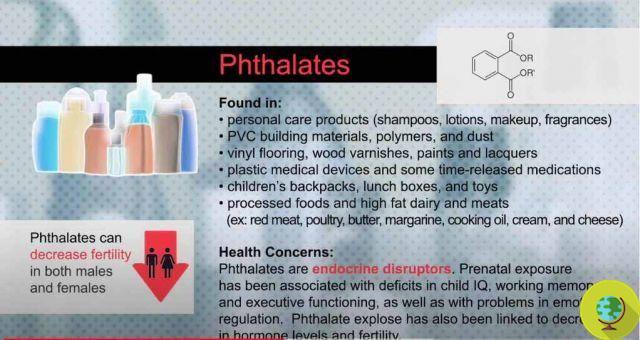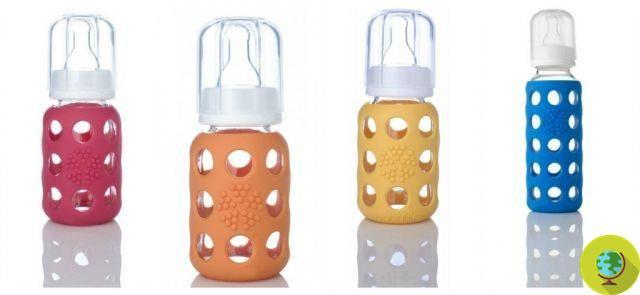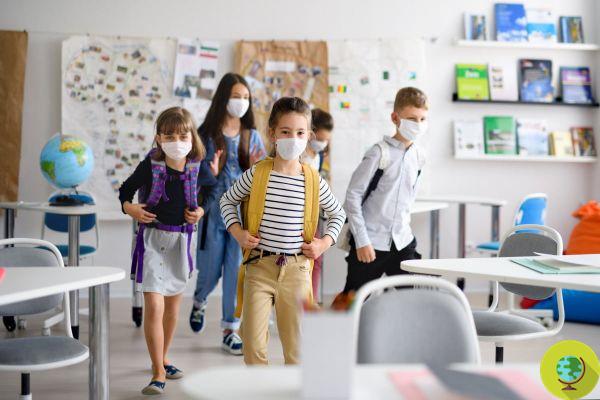Don't store avocado like this: it's dangerous
Prenatal exposure to phthalates can lead to a slowing of children's cognitive abilities. According to a new study conducted in the United States.
Phthalates, and other substances that act as endocrine disruptors or that can cause damage to the human body, are in many objects of common use, often in the hands of children too. Our exposure is therefore generally very high and several studies are starting to link it to a series of problems, often encountered in children.
Phthalates have been associated with adverse neuro behaviors among other things, but little is known about their influence on infant cognition. We had already told you about a study that showed that phthalates are able to damage the brains of children.
Read also: Phthalates damage children's brains and must be banned immediately. The alarm in a new studio
A very similar result has also come from new research, conducted by scientists from the University of Illinois. The team, led by Susan Schantz, analyzed exposure to these substances in the prenatal phase, i.e. what would happen if the fetus came into contact with them as early as pregnancy.
Indeed, a relationship was identified between phthalates and slower information processing speed, as well as poorer recognition memory, in infants who had been more exposed to them during pregnancy.
The researchers compared the presence of metabolites of three common phthalates in urine samples collected from pregnant women with assessments of newborns once they reached the age of 7 and a half months.
A well-established method was used that provides insight into the reasoning of children so young, still unable to express themselves verbally: infants typically look at unfamiliar or unexpected images or events for longer.
The team used an infrared eye tracker to track each child's gaze during several lab tests. With the baby sitting on a caregiver's lap, the researchers first familiarized the baby with two identical images of a face then, after he learned to recognize him, the researchers showed the same face paired to another stranger.
“In repeated tests, half of the 244 children tested saw one set of familiar faces and the other half learned to recognize a different set of faces as familiar. By analyzing the time spent looking at faces, we were able to determine both the speed with which the children processed new information and assess their ability to pay attention, ”explained Susan Schantz, neurotoxicologist and professor of comparative biosciences at the University of Illinois. Urban.
The analysis linked a stronger exposure of pregnant women to most phthalates with slower information processing in their babies, but the outcome depended on the specific chemical, the sex of the baby, and which set of faces the Child considered family members. Male infants, in particular, tended to process information more slowly if their mothers had been exposed to higher concentrations of phthalates, known just as substances that interfere with androgen hormones.

Published in the journal Neurotoxicology, the research is part of the Illinois Kids Development Study, which tracks the effects of chemicals on children's physical and behavioral development from birth to mid-childhood. Now in its seventh year, IKIDS has enrolled hundreds of participants and is monitoring exposure to various substances in pregnant women and the developmental outcomes of their children.
Susan Schantz explained that:
“IKIDS (…) is monitoring the impact of prenatal chemical exposures and maternal psychosocial stress on children's growth and development over time. We measure numerous outcomes at birth, including birth weight and gestational age. We also evaluate children's cognition by studying their visual behavior. This allows us to obtain measures of working memory, attention and information processing speed ".
The problem of exposure to synthetic substances, which in the US are known as "chemicals", seems to be getting out of hand. Although more and more research shows the harmful effects of these substances (and we are not just talking about phthalates), too little is still being done to guarantee our health and in particular that of children.
Fonti: University of Illinois / Neurotoxicology
Read also:
- Phthalates: Exposure during pregnancy can cause serious problems for babies
- Bisphenols and phthalates in the urine of almost half of the children analyzed: the scary Swiss study
- Not only bisophenol, the list of the most dangerous endocrine disruptors in products that you do not expect
- Not just bisphenol and phthalates: plastic contains 140 harmful substances and is a threat to human health


























